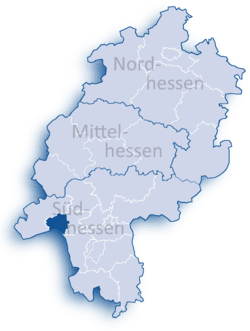Chausseehaus (Wiesbaden)
| Wiesbaden | |||
|---|---|---|---|
 |
|||
|
|||
| Coordinates: 50°05′N 8°14′E / 50.08°N 8.24°ECoordinates: 50°05′N 8°14′E / 50.08°N 8.24°E | |||
| Country | Germany | ||
| State | Hesse | ||
| Admin. region | Darmstadt | ||
| Government | |||
| • Lord Mayor | Sven Gerich (SPD) | ||
| • Governing parties | CDU / SPD | ||
| Area | |||
| • Total | 203.9 km2 (78.7 sq mi) | ||
| Elevation | 115 m (377 ft) | ||
| Population (2016-12-31) | |||
| • Total | 277,619 | ||
| • Density | 1,400/km2 (3,500/sq mi) | ||
| Time zone | CET/CEST (UTC+1/+2) | ||
| Postal codes | 65183–65207 55246 (Mainz-Kostheim) 55252 (Mainz-Kastel) |
||
| Dialling codes | 0611, 06122, 06127, 06134 | ||
| Vehicle registration | WI | ||
| Website | wiesbaden.de | ||
Wiesbaden (German pronunciation: [ˈviːsˌbaːdn̩] (![]() listen)) is a city in central western Germany and the capital of the federal state of Hesse. In January 2018, it had 289,544 inhabitants, plus approximately 19,000 United States citizens (mostly associated with the United States Army). The Wiesbaden urban area is home to approx. 560,000 people.
listen)) is a city in central western Germany and the capital of the federal state of Hesse. In January 2018, it had 289,544 inhabitants, plus approximately 19,000 United States citizens (mostly associated with the United States Army). The Wiesbaden urban area is home to approx. 560,000 people.
The city, together with nearby Frankfurt am Main, Darmstadt, and Mainz, is part of the Frankfurt Rhine Main Region, a metropolitan area with a combined population of about 5.8 million people.
Wiesbaden is one of the oldest spa towns in Europe. Its name translates to "meadow baths", a reference to the hot springs. It is internationally famous for its architecture, climate (it is also called the "Nice of the North"), and hot springs. At one time, Wiesbaden boasted 26 hot springs. Fourteen of the springs are still flowing today.
In 1970, the town hosted the tenth Hessentag state festival.
The city is considered the tenth richest in Germany (2014) boasting 110.3% of the national average gross domestic product in 2017. The average annual buying power per citizen is €24,783.
...
Wikipedia




